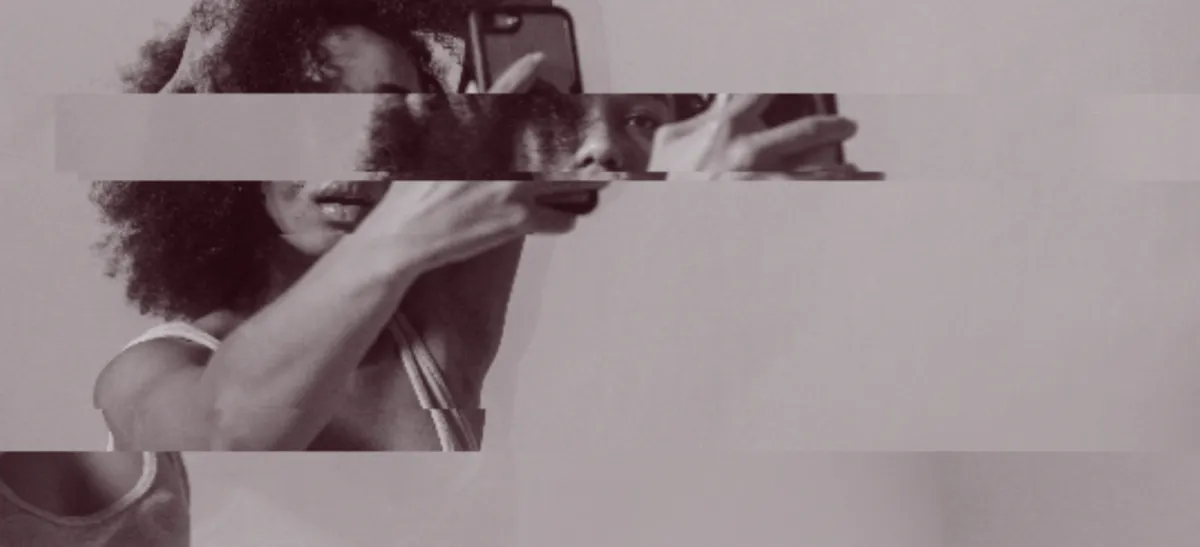Misogynoir in The Influencer Economy: When Will Brands Learn to Stop Stealing From Black Women?
Exploring the discrimination plaguing the influencer industry, and how it exploits Black women.

Access the Audio Read version of this article directly on Spotify for Podcasters.
"These pervasive unconscious biases make it hard for creators to get a foot in the door beyond the "token" spots that most brands have opened to claim their diversity quota."
Being an influencer has grown to be one of the most coveted careers in the world, with the influencer economy valued at over USD 100 billion in 2022. Yet, its dark sides, from wage gaps to discrimination patterns, remain underexplored - hidden behind fancy red carpets and PR packages.
Misogynoir, a term coined by the writer Moya Bailey in 2010 while addressing the misogyny Black women face in visual arts and pop culture, is rife in the influencer industry. The rise of creator culture has now called into question the dynamics within the industry and the decisions made in these spaces, as it concerns the creators who are credited on projects, reached out to by brands and pay disparity. Ironically, ‘misogynoir’ is now trending in the mainstream thanks to TikTok, with Black women, whether content creators or social media users, increasingly calling out the intersectional unfairness they face due to their gender and race.
To understand these situations in more depth, I spoke to influencers and marketing managers about the discriminatory practices that have become common within the industry. Evidently, those discriminations have a lot to do with the lack of representation on the marketing side of brands - whether in-house or in campaigns. The pervasive unconscious biases this creates make it hard for creators to get a foot in the door beyond the "token" spots that most brands have opened to claim their diversity quota. A prevalent lack of transparency further widens the influencer pay gap, and makes it easier for brands to underpay creators of colour.
Speaking to Niké Ojekunle, who has been in the influencer industry for over 12 years (from the days when influencers were just referred to as bloggers), was insightful, to say the least. In 2022, Specs and Blazers founder Niké accused the influencer agency Carter Agency of swindling millions from their signed creators - 95% of them being women of colour. When asked what she thought would be their reasons for targeting Black women and creators of colour, she said, "They believe that they are gullible". She further explained that "due to the systemic pay gaps and efforts to lowball Black creators, most would think nothing of the low brand deal as it's not an unusual experience.”
Niké previously explained on her social media channels how she found out about the scam and how the agency’s founder went about taking money from influencers’ brand deals on top of the hefty 20% that is standard in the industry. "I think brands believe that if you are a Black influencer, you only have Black followers," she said, adding that this deeply-rooted bias is a significant factor when it comes to brands reaching out to creators.
This sentiment was also supported by V. Najera, a creator and brand marketing manager. She explained that it had been one of the reasons she left her previous position, as brands are unwilling to change their mindset. "They are insistent on the way their customers look and that their customers only want to see a certain type of person, meaning someone who is white," she said. This inherently signals that they don't see the value in Black women and women of colour, despite being the trendsetters and people with the most buying power in pop culture.
These biases are the primary cause of the general pay gap, as they set the tone of giving reduced offers to more diverse creators. "Besides the systemic biases, Black influencers don't know how to ask for their worth,” said Niké. “Thus why I started The InFOOLenser Academy. I want more creators to know their worth and charge accordingly." When asked what Black and POC creators can do to ensure better pay and fight the systemic issues, she said: "We need to show a strong & unified front in asking for what we deserve. We had this opportunity with Carter Agency and we did the opposite. We should publicly support one another, create more pay transparency, eliminate the competition mindset, and stop disparaging one another publicly."
Discrimination can also be found in social media visibility, with algorithms privileging fair-skinned creators, but also PR and gifting opportunities. In a terrible ripple effect, this influences not only how Black creators produce content, but their finances, resources, and ability to make a career out of what they love.
But all is not lost. As the discussion about systemic issues now gathers attention from the general public, with more social media users or consumers calling out these brands, we could potentially slowly break down the walls that cause pay and opportunity disparities in the influencer industry. We can collectively hold scam agencies accountable for making a profit out of Black women’s suffering and underpaid labour, but we can also stop shopping from the brands they represent. It’s not impossible to think that the influencer industry will save itself by using its own influential powers.





